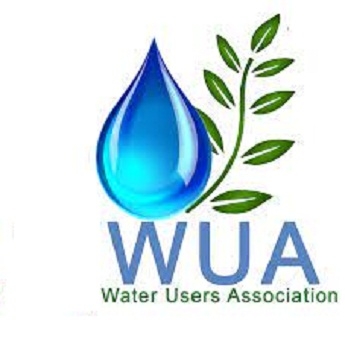Water users’ associations in State are born weak, nurtured weak, die weak: Report
| Date :19-Apr-2021 |

By Kartik Lokhande :
A recent study on reviving participatory irrigation management in Maharashtra has summarised the status of the water users’ associations (WUAs) in the State as ‘born weak, nurtured weak and eventually they die weak’. After recording its findings, the study report has stressed that the involvement of farmers and strengthening their participation ‘is the only feasible option’ for efficient and equitable management of irrigation service delivery. The study report titled ‘Reviving Participatory Irrigation Management in Maharashtra: Moving Towards Member-Centric Water Users’ Associations’ is authored by Sachin Tiwale, Dr Sampat Kale, and Dr Suhas Bhasme. The report is an outcome of a study commissioned by Water Resources Department (WRD) of Maharashtra to assess the status of Participatory Irrigation Management (PIM) in the State. It was conducted jointly by Centre for Water Policy, Regulation and Governance, School of Habitat Studies, Tata Institute of Social Sciences (TISS), Mumbai; and School of Rural Development, TISS-Tuljapur. Conducted in three phases, the study includes a review of local, national and global experiences of PIM.
A State-wide survey of 163 WUAs, 163 WRD field staff and 4,998 farmers, in-depth case studies of selected WUAs, and extensive interactions with senior WRD officers, WUA office-bearers, and representatives from NGOs, research organisations, community-based organisations, development cooperation agencies, and farmer producer companies (FPC) went into making of the report. The study found that the WUAs ‘stood on a weak foundation’ due to several procedural lapses during WUA inception process. The processes would include WUA formation, registration, signing an agreement, joint inspection and irrigation system handover. Often, it found, WUAs were formed by involving a few selected farmers from the command area. As a result, WUAs failed to emerge as organisations representing all farmers. Moreover, the involved farmers were not made aware of the concept of PIM and the role, authorities and responsibilities of WUAs and their member farmers. The study pointed out that WRD did ‘not have consistent and reliable information about WUAs’.
The centralised WUA database maintained at Directorate of Irrigation Research and Development (DIRD) reported a total of 2,880 functioning WUAs across Maharashtra, However, the study found that around a quarter of the surveyed WUAs were ‘yet to sign an agreement with WRD’. Moreover, respective irrigation systems were not handed over for years to 39 per cent of WUAs categorised as functional. The study identified ‘significant discrepancies’ between data maintained at DIRD, data provided by WRD field staff, and data reported by WUA office-bearers on parameters as basic as the status of WRD-WUA agreement, handover of the irrigation system, joint inspection and volumetric measurement. Around 65 per cent of the WUAs surveyed lacked any training. Among the WUAs that received training, 60 per cent were provided with only one training, ‘which is inadequate for managing the irrigation service and the WUA’.
Around half of 163 WRD field staff did not receive any training related to PIM in their entire career! Of the remaining, about 60 per cent attended only one training and around one-third staff attended training more than five years ago. Based on these and other findings, the study summarised the current status of WUAs as ‘born weak, nurtured weak and eventually die weak’. As part of solution, it suggested that involvement of farmers and strengthening their participation is the only feasible option for efficient and equitable management of irrigation service delivery. The recommendations emphasised measures for strengthening WUAs, improving WUA-WRD relationship, improving physical conditions of irrigation service delivery, and enhancing the role of WRD in PIM process.
‘Only 29% WUAs received water consistently for all 10 years’ Assuring adequate and timely irrigation water as per norms is supposed to be enshrined in the entitled water quota allotted and assured to WUA. However, the study brought to fore, in 57 per cent of the surveyed WUAs, the agreements were signed without mentioning the water quota. “This defeats the very purpose of signing any agreement between the WRD and WUA,” it added. The analysis of last 10 years’ irrigation service delivery indicated that on an average, only 62 per cent WUAs received water in any year, implying that an average of over one-third of the WUAs ‘was not served in any year in the last ten years’. Besides, only 29 per cent WUAs received water consistently for all 10 years, and 13 per cent did not receive water at all in the last 10 years.
